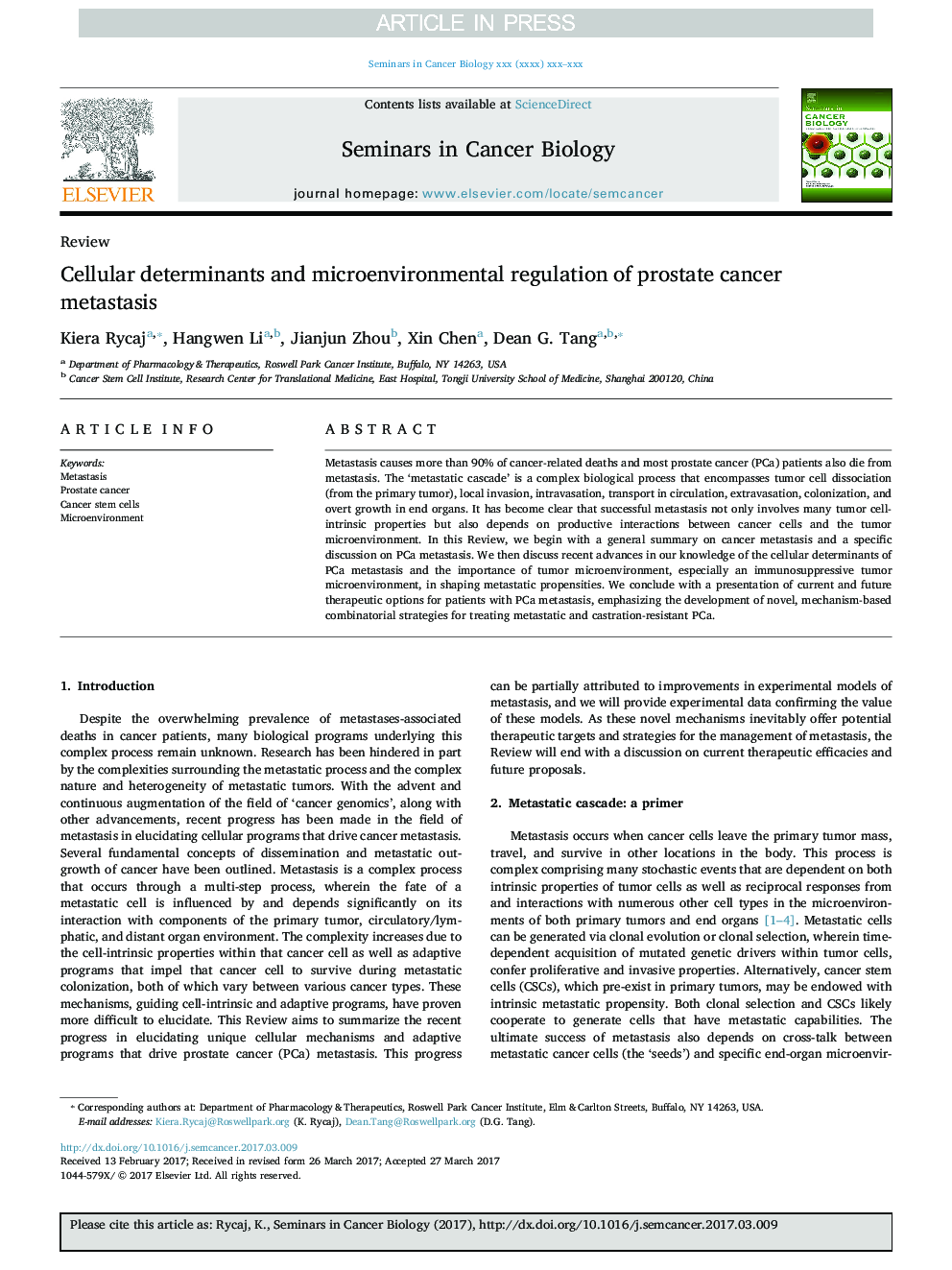| Article ID | Journal | Published Year | Pages | File Type |
|---|---|---|---|---|
| 8361902 | Seminars in Cancer Biology | 2017 | 16 Pages |
Abstract
Metastasis causes more than 90% of cancer-related deaths and most prostate cancer (PCa) patients also die from metastasis. The 'metastatic cascade' is a complex biological process that encompasses tumor cell dissociation (from the primary tumor), local invasion, intravasation, transport in circulation, extravasation, colonization, and overt growth in end organs. It has become clear that successful metastasis not only involves many tumor cell-intrinsic properties but also depends on productive interactions between cancer cells and the tumor microenvironment. In this Review, we begin with a general summary on cancer metastasis and a specific discussion on PCa metastasis. We then discuss recent advances in our knowledge of the cellular determinants of PCa metastasis and the importance of tumor microenvironment, especially an immunosuppressive tumor microenvironment, in shaping metastatic propensities. We conclude with a presentation of current and future therapeutic options for patients with PCa metastasis, emphasizing the development of novel, mechanism-based combinatorial strategies for treating metastatic and castration-resistant PCa.
Related Topics
Life Sciences
Biochemistry, Genetics and Molecular Biology
Biochemistry
Authors
Kiera Rycaj, Hangwen Li, Jianjun Zhou, Xin Chen, Dean G. Tang,
